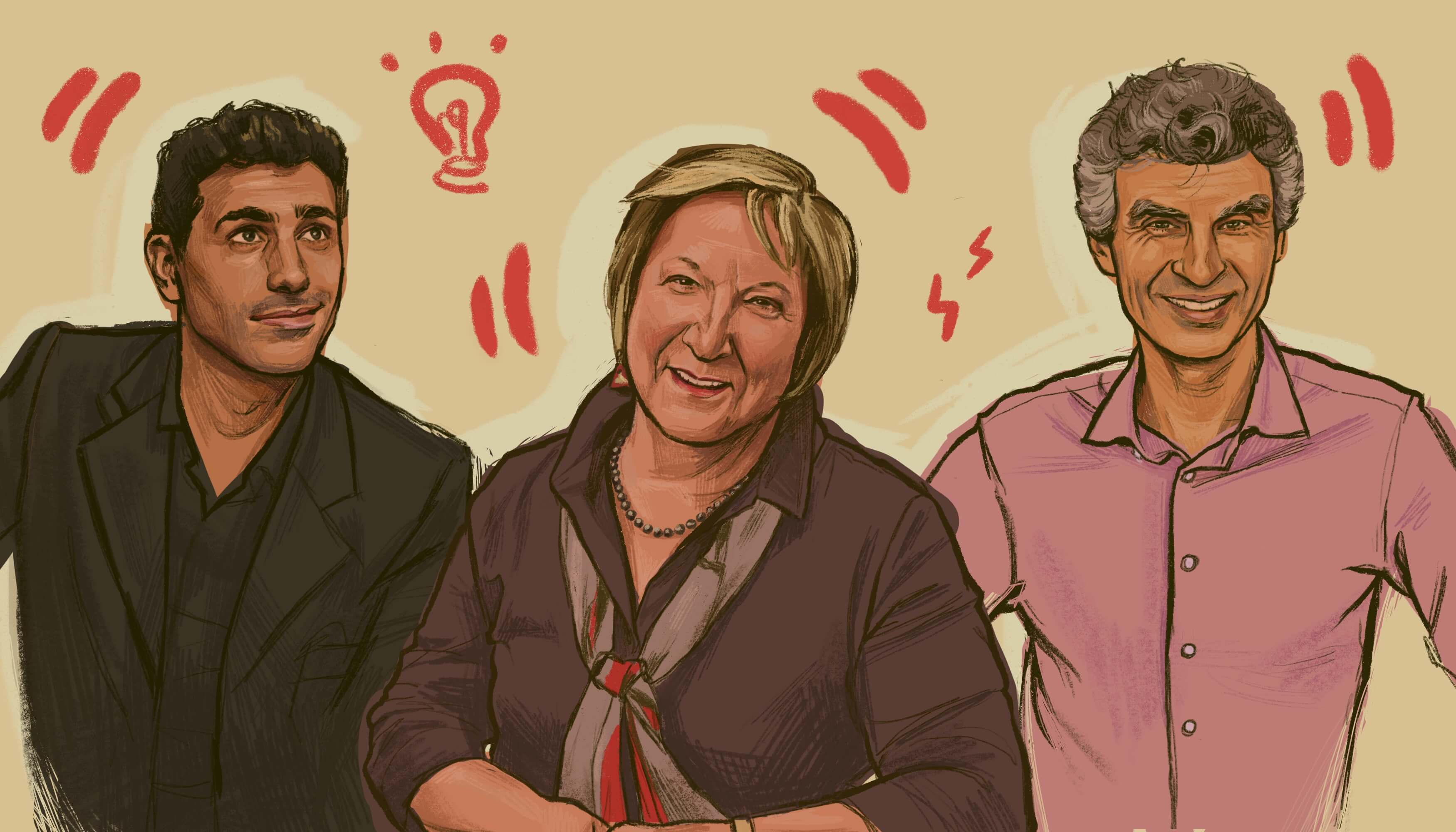Track Report Connect Exchange (TRaCE) McGill, a graduate and postdoctoral studies alumni network, hosted an event on March 26 as part of McGill’s bicentennial celebrations. The event, presented by Helen Martin, a PhD candidate in the Department of Psychiatry, and Hannah Korell, a PhD candidate in the Department of English, was live streamed on YouTube. The panellists included Professor Martha Crago (PhD in Communication Sciences and Disorders, ‘88), McGill’s vice-principal of Research and Innovation; Professor Yoshua Bengio (PhD in Computer Science, ‘91), a specialist in the field of artificial intelligence; and Juan Sebastián Delgado (PhD in Music Performance, ‘17), an award-winning cellist in the group Stick&Bow.
Speakers talked about their experience as McGill PhD alumni and professionals, beginning by reflecting on the moment they chose to pursue a PhD. Crago was a 38-year-old mother at the time and said she decided to pursue a PhD after having an epiphany. Crago read part of the speech she had written for her honorary degree at the University of British Columbia, describing the spark of inspiration that launched her into her studies.
“I had lost my favourite sister to breast cancer in the 1980s and […] I really felt quite lost and alone,” Crago said. “One day […] I saw a sign on the wall of a church with a quote by the German writer Goethe that said: ‘Whatever you can do or dream, begin it. Courage has genius power and magic in it.’”
Once Crago started her PhD, one of the biggest obstacles she faced was securing funding for her research when she was studying Inuit children’s communicative interaction in northern Quebec.
“The difficulty was trying to find money […] because I did not have a supervisor who had this kind of money,” Crago said. “We did discover that the Sick Children Foundation […] in Toronto would support a PhD study for $25,000.’’
Bengio discussed obstacles that PhD students face, and added that the relatively unexplored nature of his research area, neural networks and Markov models, constituted a barrier for his work.
“My main challenge was […] the subject I chose,” Bengio said. “No one knew about it in my department or anywhere in Montreal [….] The thing that saved me [was] going to conferences and meeting like-minded people.”
Delgado said he experienced challenges in balancing the different research components of his PhD, which examined the intersection of contemporary music and tango through cello pieces composed during the 21st century.
“My training as a musician was very focussed on the performance aspect,” Delgado said. “There were moments where I felt I was navigating alone because I had to balance […] the performer aspect […] and the research component.”
Panellists were questioned about their transition to the job market after completing their PhDs. For Bengio, the most difficult part was the transition from the relative single-mindedness of PhD research to the multi-tasking involved in working in the field of computer science. One of Bengio’s assets was having self-confidence.
“We should find ways to make [the job market] inclusive for people who are not as outspoken,” Bengio said. “We would gain a lot as a society.”
The speakers concluded by giving advice to prospective PhD students. Delgado encouraged students to explore an area of research that they are passionate about.
“Without losing perspective, try to […] really explore, experience, and to take that time which is unique in your life, because afterwards you have to move on and survive,” Delgado said. “[Your PhD] is a wonderful time to really dig into something that we love and that we are passionate about. Not a lot of people have this opportunity.”









